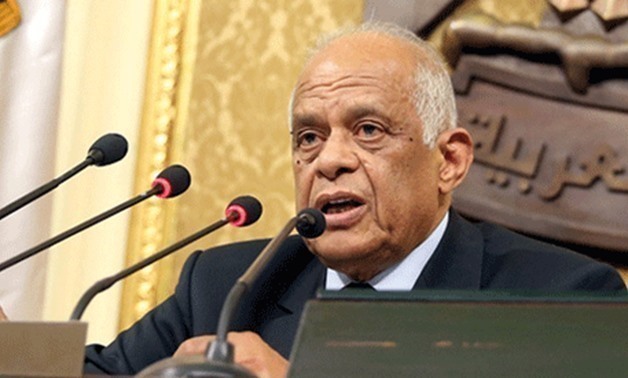
FILE: Speaker of the House of Representatives Ali Abdel Aal
CAIRO – 20 February 2018: Parliamentary questions are one of the monitoring instruments allowed by the Constitution for the members of Parliament to hold the government to account on a certain issue. Egypt Today gives an overview about the ways these questions are discussed in Parliament.
Each MP can submit questions to the prime minister, one of his deputies or a minister for an answer either orally or in writing to seek information from ministries and to press them for action. The questions should be concise and in courteous language.
The government should orally answer these questions during the same parliamentary round if they are not one of the questions that should be answered in writing in accordance to the Constitution.
The answer could be replied in writing if the MP asked for that. The question aims to obtain data and statistical information, requiring the specialized minister to answer.
If the specialized official is not present in the session to answer orally, the Parliament inserts the question in one of the agendas of the nearest session, and the answer should be given in not more than a month.
As for approving bills proposed to the Parliament, if the government or any parliamentarian has a proposal for a bill, they must submit it to the Parliament to be discussed. Then, the Parliament shall refer it to a plenary session to be considered and voted on.
If it is approved, it is then sent either to a specialized committee in the Parliament, based on the field that bill tackles, or to a joint committee, in case the bill tackles more than one field, to discuss and amend it as required.
Yet, if Parliament rejects it from the beginning, it should provide a report about the reason. Furthermore, a bill that the chamber has rejected must not be reintroduced in the same legislative session.
If the specialized committee approves the bill, it starts discussing each article in it and introduces it to the Constitutional and Legislative Affairs Committee to consider and coordinate its articles, before the specialized committee presents a report about it to a full chamber of the Parliament to be discussed in the plenary session.
However, for the parliamentarians to introduce a bill to the Parliament, 60 MPs should sign it before being sent to the Parliament. However, if less than 10 members proposed the bill, the Parliament refers it to the Complaints and Proposals Committee, not to a specialized committee, to prepare a report on it, and if it is approved, it is passed to the specialized committee.
The plenary session agrees on it and refers it to the State Council to revise it, and then it is sent again to the Parliament. Once the parliament approves the bill after voting on it, the bill becomes a law.

Comments
Leave a Comment